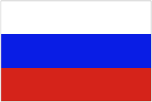 Draper Fisher Jurvetson has become the first major Silicon Valley venture capital firm to invest in Russia, a high-risk venture given the chaotic political and economic state of that country.
Draper Fisher Jurvetson has become the first major Silicon Valley venture capital firm to invest in Russia, a high-risk venture given the chaotic political and economic state of that country.
The firm will help manage a $150 million fund to invest in technology companies from Russia and parts of Eastern Europe, it said yesterday.
The move is notable because Russia has been harshly criticized for suppressing opposition political parties, independent media outlets and private companies, such as former oil giant Yukos, that have openly threatened the Kremlin’s power. Under the terms, DFJ will actually co-manage the fund with the Kremlin-controlled bank, the VTB.
The Economist’s August 25th issue (subscription required) describes how the Russian government’s secret service officers have gained behind-the-scenes control of the country’s most powerful institutions, such Gazprom, the country’s dominant energy firm.
However, DFJ says it doesn’t see its investments as helping support the Kremlin’s control of the Russian economy. Rather, beyond the chance to make money, DFJ says its expertise and finance can help support development of a free market economy there. DFJ’s leader, Tim Draper, has long said contributing to such change motivates his international investments.
Dilemmas about dealing with repressive governments are hardly new in Silicon Valley. For example, Google, Yahoo and other web companies have decided to self-censor their search results in China; Google justified its decision by saying limited information through Google is better than no information.
Besides Russia, the fund, called DFJ-VTB Aurora, will invest in the neighboring Commonwealth of Independent States, including Belarus, Georgia, Ukraine (where DFJ also has business connections), and others. The fund plans to invest between $2 million and $16 million per company.
Initially, DFJ is not contributing directly to the fund. But, by helping pick companies, it will have the opportunity to co-invest in them down the line. Half of the money will come from the Russian government and twenty percent from the European Bank of Reconstruction and Development.
Thousands of highly-educated engineers and scientists in the region have the skill, talent and motivation to build big companies, said a DFJ managing director who focuses on emerging markets, Don Wood, in an interview with VentureBeat — they just haven’t had the resources or role models to do so, he says.
DFJ’s move also continues its strategy of partnering with other investors to make early-stage investments in developing countries.
The Draper network, comprised of DFJ and 22 other funds around the world, typically entails DFJ forming partnerships with other investors to set up a fund in a region. Typically, at least one of DFJ’s own partners will site on a fund’s executive board. It’s a system of ordered chaos, with the occasional break between DFJ, partners and local managers, as typified by its break with ePlanet Ventures in 2005 (our coverage), a firm which helped DFJ land early investments in European calling service Skype and Chinese search engine Baidu.
Most recently, DFJ has partnered with Esprit Capital Partners, creating DFJ Esprit, based in London, with $560 million in backing. It is DFJ’s exclusive European investment partner.
DFJ and VTB are planning a second fund for investing in companies that rely on regional resources, but may be headquartered in other parts of the world.
More generally, the Russian government is looking to the Israeli model of developing a venture industry, which in essence entails the government helping to fund VC’s, then letting them keep a large portion of any returns. See this contributor piece by Yuri Ammosov, a senior policy officer of the Russian government in charge of high and tech venture capital development programs.
Other venture firms have also begun investing in Russia. One example is Luxembourg-based Mangrove Capital Partners, which in May announced a partnership with Russia-based ABRT Venture Fund (link is to cached page as ABRT site is currently down).
Ammosov has also provided us with a number of downloadable materials about investing in Russia:
– A Powerpoint presentation about the Russian Venture Company, a government fund, and its efforts to develop the economy’s technology sector (here)
– The tech sectors the Russian government wants to support the most (here)
– A sample terms sheet for a fund that RVC would invest in (here)
VentureBeat's mission is to be a digital town square for technical decision-makers to gain knowledge about transformative enterprise technology and transact. Learn More
